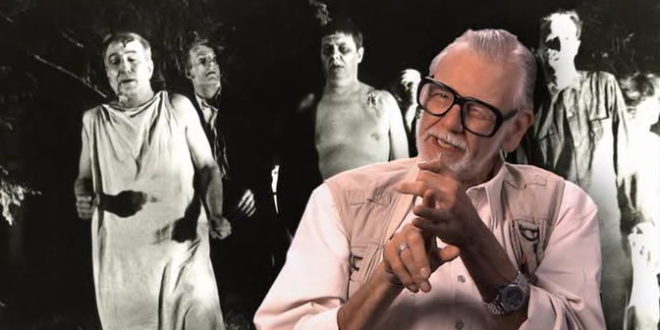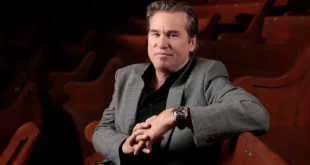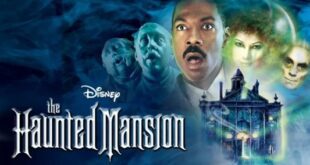Born on February 4, 1940, George A. Romero is well known as a horror icon and the co-creator of the modern, man-eating zombie (along with John Russo). In fact, as crazy and fanboy-ish as this sounds, it’s actually difficult to exaggerate his influence on pop culture. Virtually everyone is familiar with zombies, largely thanks to his Night of the Living Dead (1968) and subsequent undead triumphs. There are occasional resurgences of zombie-mania in America because it’s a phenomenon that just won’t die. Though Romero himself died in 2017, his visions live on. He had directed some other quality films and TV projects, like Creepshow (1982 – read our retro review here) and Tales from the Darkside. However, there’s no denying that he’s mostly known for his zombie stuff, and that’s okay.
An Example of Zombie-Mania
Back in 2014, news organizations everywhere ran stories with titles like Exclusive: The Pentagon Has a Plan to Stop the Zombie Apocalypse. Seriously. Was it an April Fool’s Day joke? No, and it was half-serious. The plan, called “CONOP 8888,” was defended along the following lines by the military:
“Planners … realized that training examples for plans must accommodate the political fallout that occurs if the general public mistakenly believes that a fictional training scenario is actually a real plan… we elected to use a completely-impossible scenario that could never be mistaken for a real plan.”
While that’s rather silly, it almost perfectly matches the moods and themes of a Romero zombie flick. They usually have some humorous, off-the-wall qualities to them while also addressing some real life stuff. If nothing else, they make us ponder the nature of life and death, and inevitably, have us asking how we would fare in a crisis. What would we do if we were of Ben (Duane Jones) or Barbara (Judith O’Dea)? Or how about Roger (Scott Reiniger), Peter (Ken Foree), Stephen (David Emge) and Francine (Gaylen Ross)? The central tenet of the Dead films (all 6 of them) is that, like cats in a corner, people behave differently in crisis mode. While The Walking Dead and other zombie movies/shows explore many of the same issues, they’re all retracing Romero’s steps.
Unintentionally Serious and Historic
One fascinating aspect of George A. Romero’s original Dead film is that, through sheer coincidence, its final scene took on a bold meaning. When Ben dies, it is certainly meant to be tragic, but there was originally no racial connotation. Duane Jones famously got the part simply by being the best actor available. It took on even greater (unplanned) dimension with the assassination of Martin Luther King, Jr.
While one could correct those who falsely assume Romero intended this commentary, it’s almost pointless. In fact, one wonders if Night of the Living Dead doesn’t function as a significant commentary on such events, as it certainly shows society coming apart at the seams. Even at the very end, where Law and Order is re-establishing itself, it has tragic consequences for innocent and guilty alike. Ben was – and still is – a mere bystander to the broad spectacle of chaos, order, life, and death. He had his own faults, just as surely as Harry Cooper (Karl Hardman) had his. However, what good are any people if they don’t give each other a chance, especially if they put bullets in each other’s brains?
Romero’s zombie movies are always up to interpretation and can sometimes be taken too seriously or not seriously enough. Still, the serious side is always there, right when we need it. As Helen Cooper (Marilyn Eastman) says, “We may not enjoy living together, but dying together isn’t going to solve anything.” Indeed, and it’s still true.
What are your thoughts on George A. Romero and his legacy? Let us know in the comments!
 PopHorror Let's Get Scared
PopHorror Let's Get Scared




